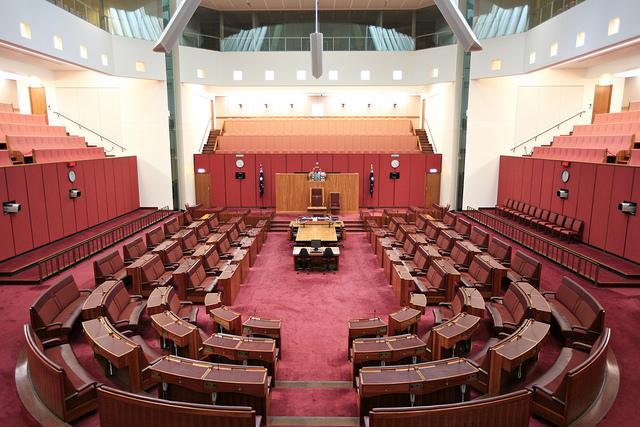Morality and public policy
Posted By Allan Behm on February 11, 2016 @ 14:30
Everyone on the public payroll, military and civilian alike, has a duty to carry out the lawful instructions of government. They also have a duty to provide considered, honest and impartial advice to government, and to warn government of any policy, reputational or moral hazard it might face.
Equally, it’s not for anyone on the public payroll, military or civilian, to imagine that they are the government’s conscience. Ultimately, moral and political responsibility must rest with the elected decision-makers—the Minister and/or the Cabinet.
But the tension between ends and means in the execution of government decisions may create a dilemma for those charged with implementing them. For members of the ADF, this is nowhere more evident than in the formulation of Rules of Engagement (ROE) covering the use of lethal force.
With hands-on experience in developing ROE in both simulation exercises and ‘the real thing’ (Bougainville and INTERFET), I can attest to both the seriousness of the rule makers and the considered nature of the rules made. For the ADF, the development of ROE is informed by the various conventions and treaties to which Australia is party and, of course, by Australian law and the laws of the nation(s) in which the ADF might operate. And in the development and framing of joint ROE, it’s not uncommon for Australian ROE to be more restrictive than those of our allies.
Where ROE are not observed or otherwise defied, those responsible are usually charged and brought to justice. The appalling practices employed at the Abu Ghraib prison provide a salutary case in point.
If the use of potentially lethal force in armed conflict is delicate and requires fine judgement, the use of the ADF in providing aid to the civil power raises even more difficult questions and places an even greater onus on those implementing government policy.
As the questioning of senior departmental officials at Senate Estimates just this week has shown, the moral dimension of public policy is always under scrutiny—even where the government and the opposition more or less agree on the policy parameters. Operation Sovereign Borders and the consequent detention of refugees on Manus Island and Nauru continue to generate a measure of moral uncertainty in both the Australian parliament and the Australian community. The decision of the major denominations to grant sanctuary in their churches is a direct challenge [2] to the current refugee policy.
Anecdotal evidence suggests that a number of the officers and crew who operate the Royal Australian Navy’s patrol vessels find the command ‘turn back the boats’ morally confronting—not just for reasons of Safety Of Life at Sea but also for reasons of the implicit duty of care towards those who are in distress. It’s to their credit that harsh measures do not sit easily. It’s equally to their credit that they carry out the lawful directions of their commanders.
The situation surrounding refugees who have been detained in the offshore detention centres but brought to Australia to undergo medical treatment raises fundamental questions of morality, especially where children are concerned. The effects of long-term detention on children have been well documented since the end of WW2, when so many children were in Displaced Persons camps all over Europe. The issue turns on whether the duty of care Australia has accepted under the 1951 Refugee Convention and the 1989 Convention on the Rights of the Child, which together impose a moral obligation on Australia, is consistent with the way we’re currently exercising our legal right to manage our national borders.
Of course, the law and morality are not always happy companions. The High Court decides the law, and has recently determined [3] that Australia detains people in the offshore facilities lawfully. Governments determine matters of public morality.
And it’s here that public officials do have a role. In framing advice on border management, public officials have a duty to government to advise of moral hazard. The moral issue is not whether the boats are stopped, or whether the business model of people smugglers is broken. The moral issue is whether Australia has fundamental obligations both to the refugees and to its own citizens (who do have a strong moral sense) to display that duty of care that attaches to all people, by virtue of their humanity.
There’s a fundamental logical fallacy at play in the proposition that ‘by detaining people in offshore facilities, we have stopped people from drowning at sea’. It’s the post hoc ergo propter hoc argument that claims that the reason for something is determined by what happens later. There’s also a serious ‘ends justifying means’ trap of the King Herod kind that would end children living in poverty by killing all the children.
Senior departmental officials may huff and puff at Senate Estimates, but the ultimate responsibility for policy rests with the politicians. It may be the case, as Dr Peter Shergold suggested recently [4], that senior officials across the board are no longer capable of providing frank and fearless advice. It could equally well be argued that governments are no longer capable of asking for it.
The buck stops with government. Successive governments have simply failed to face up to the moral challenges created by a narrowly focused border management policy. Where public policy fails to address the moral dimension, the moral credibility of political decision-makers is destroyed.
The Prime Minister has some work to do here.
Article printed from The Strategist: https://aspistrategist.ru
URL to article: /morality-and-public-policy/
URLs in this post:
[1] Image: https://aspistrategist.ru/wp-content/uploads/2016/02/6769187599_6a47ee8d63_z.jpg
[2] direct challenge: http://www.theaustralian.com.au/national-affairs/peter-dutton-warns-churches-over-sanctuary-to-asylum-seekers/news-story/26476a7569e8c61d488ebf27ddeae9e4
[3] recently determined: http://www.hcourt.gov.au/assets/publications/judgment-summaries/2016/hca-1-2016-02-03.pdf
[4] suggested recently: http://www.canberratimes.com.au/national/public-service/former-pmc-secretary-urges-public-servants-to-be-frank-and-fearless-20160209-gmpe9s.html
Click here to print.
